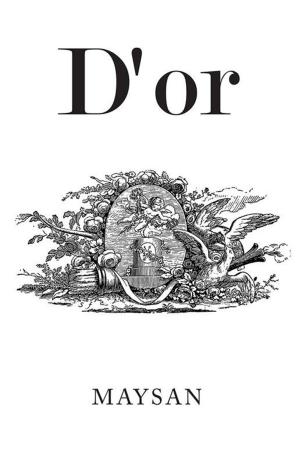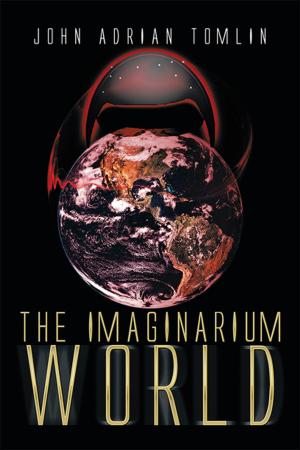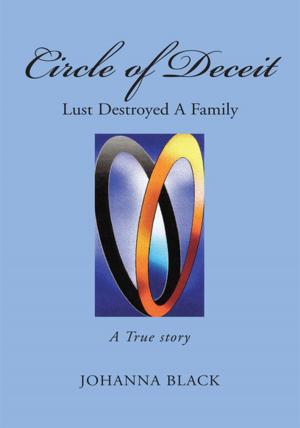| Author: | Caleb Levi | ISBN: | 9781465381286 |
| Publisher: | Xlibris US | Publication: | April 26, 2001 |
| Imprint: | Xlibris US | Language: | English |
| Author: | Caleb Levi |
| ISBN: | 9781465381286 |
| Publisher: | Xlibris US |
| Publication: | April 26, 2001 |
| Imprint: | Xlibris US |
| Language: | English |
I present this work as a novel, a work of fiction...even though I myself believe it to be more truthful than any other version of our ancient history.
Conceptually, the novel attempts to trace Earth's history in the very broadest of ranges from its beginnings up until about 1500 B.C.
That history is seen through the eyes of extraterrestrials, who have had a close connection with Earth from its beginnings.
The overall view is taken in the first place from the research and writings of Zecharia Sitchin. He has done the basic spadework and interpretation on ancient Sumer, whose clay tablets all too clearly reveal the presence of extraterrestrials who call themselves the Anunnaki.
My own research has taken me down a path that seems strange even to me. I have come across a pair of ancient documents that taken together seem to lead to a sensational conclusion. I have used my imagination and these two documents to fabricate a story that I hope embraces an essential truth...a truth about human history that will, if accepted, shake orthodox concepts to their very foundations.
It might be inferred that what I have done is blend my knowledge of the Anunnaki and the Holy Bible of orthodox Christianity. In such an amalgamated view, Jehovah is viewed not as an omnipotent creator of the universe, but rather as the extraterrestrial that I believe he was. Pulling no punches and stating it as blatantly as I can, the portrait that emerges of Jehovah is not a sympathetic one. It may seem that I have given him motivation which explains his biblical actions but does not justify them. Also his sudden disappearance from human history may seem explained in my novel.
And yet, in the final analysis, the truth is that I have done nothing. It is the two ancient documents themselves that orchestrate everything written in what I have chosen to call a novel. So in all honesty I must list myself not as author, but as editor. That, I think, puts things in their truest perspective.
I understand this book is bound to cause at the very least controversy. Orthodox religions may even condemn it as blasphemous. But for me it is the closest approximation I have to truth.
-- Caleb Levi
I present this work as a novel, a work of fiction...even though I myself believe it to be more truthful than any other version of our ancient history.
Conceptually, the novel attempts to trace Earth's history in the very broadest of ranges from its beginnings up until about 1500 B.C.
That history is seen through the eyes of extraterrestrials, who have had a close connection with Earth from its beginnings.
The overall view is taken in the first place from the research and writings of Zecharia Sitchin. He has done the basic spadework and interpretation on ancient Sumer, whose clay tablets all too clearly reveal the presence of extraterrestrials who call themselves the Anunnaki.
My own research has taken me down a path that seems strange even to me. I have come across a pair of ancient documents that taken together seem to lead to a sensational conclusion. I have used my imagination and these two documents to fabricate a story that I hope embraces an essential truth...a truth about human history that will, if accepted, shake orthodox concepts to their very foundations.
It might be inferred that what I have done is blend my knowledge of the Anunnaki and the Holy Bible of orthodox Christianity. In such an amalgamated view, Jehovah is viewed not as an omnipotent creator of the universe, but rather as the extraterrestrial that I believe he was. Pulling no punches and stating it as blatantly as I can, the portrait that emerges of Jehovah is not a sympathetic one. It may seem that I have given him motivation which explains his biblical actions but does not justify them. Also his sudden disappearance from human history may seem explained in my novel.
And yet, in the final analysis, the truth is that I have done nothing. It is the two ancient documents themselves that orchestrate everything written in what I have chosen to call a novel. So in all honesty I must list myself not as author, but as editor. That, I think, puts things in their truest perspective.
I understand this book is bound to cause at the very least controversy. Orthodox religions may even condemn it as blasphemous. But for me it is the closest approximation I have to truth.
-- Caleb Levi















